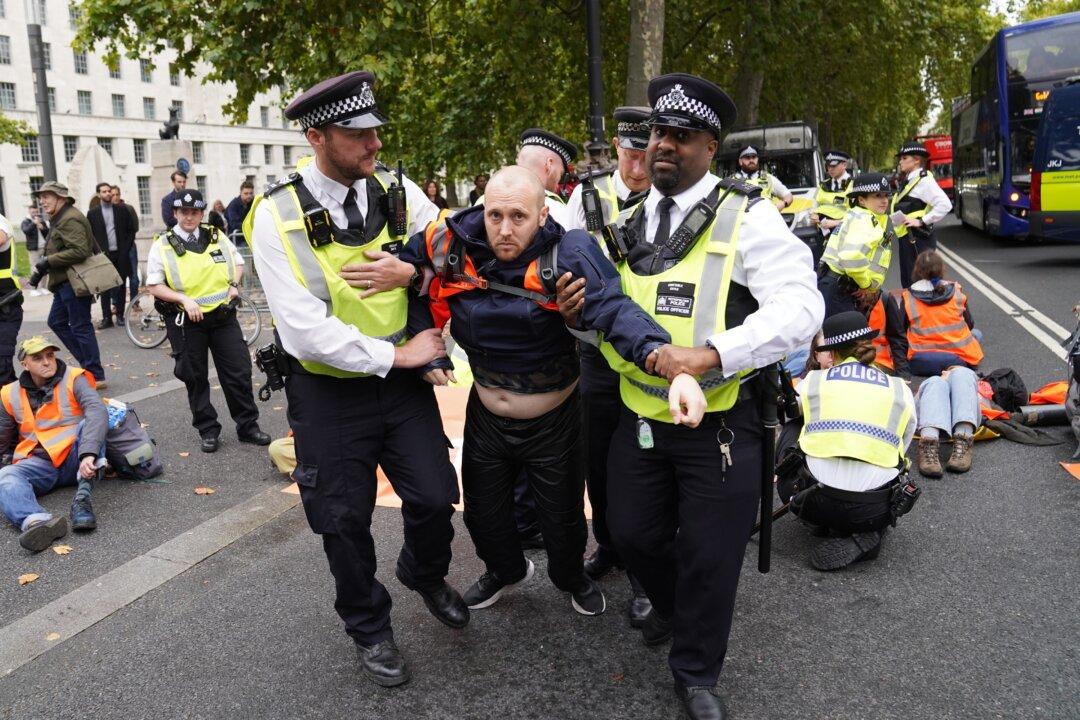Disruptive protests by the Just Stop Oil climate group cost British taxpayers £7.5 million ($9 million) in policing costs in just nine weeks, newly released figures show.
Just Stop Oil, an offshoot of Extinction Rebellion, has been staging disruptive protests in an attempt to highlight its call for the UK government to begin winding down fossil fuel production in the country.





